Meciendo
Christopher Jessup composer
Anne Kilstofte composer
Carol Barnett composer
Deborah Kavasch composer
Karen Siegel composer
Leanna Kirchoff composer
The Crossing
Donald Nally conductor
The multi-GRAMMY® award winning ensemble The Crossing, led by Donald Nally, delivers an enthralling program of contemporary choral compositions with MECIENDO from Navona Records. New works from six composers unknown to one another and yet wondrously aligned; their music weaves together seamlessly, even mystically, into a meaningful story of spirituality and interconnectedness. Warmth and sparkle alternate effortlessly in the choral textures created by this renowned ensemble, enveloping listeners in a sound that travels from the closed arms of a loved one to the stars above. Available in stereo and Dolby Atmos immersive audio formats, MECIENDO blends the intimate and the profound in an awe-inducing performance.
Listen
Stream/Buy
Choose your platform

Experience in Immersive Audio
This album is available in spatial audio on compatible devices.
Stream now on Apple Music, Tidal, and Amazon Music.
Track Listing & Credits
| # | Title | Composer | Performer | |
|---|---|---|---|---|
| 01 | When All Falls Silent | Carol Barnett | The Crossing | Donald Nally, conductor | 3:08 |
| 02 | Meciendo | Leanna Kirchoff | The Crossing | Donald Nally, conductor | 5:31 |
| 03 | Astronomia: II. The Mississippi at Midnight | Christopher Jessup | The Crossing | Donald Nally, conductor | 2:04 |
| 04 | Love Lines | Karen Siegel | The Crossing | Donald Nally, conductor | 4:10 |
| 05 | Feather on God's Breath | Deborah Kavasch | The Crossing | Donald Nally, conductor | 3:57 |
| 06 | Holy Waters: pond 1: womb | Leanna Kirchoff | The Crossing | Donald Nally, conductor | 3:12 |
| 07 | Holy Waters: pond 5: font | Leanna Kirchoff | The Crossing | Donald Nally, conductor | 2:42 |
| 08 | The Starlight Night | Anne Kilstofte | The Crossing | Donald Nally, conductor | 3:01 |
Recorded March 6-8, 2024 at St. Peter’s Church in the Great Valley in Malvern PA
Session Producer & Engineer Paul Vazquez
Editing, Mixing & Mastering Paul Vazquez
Immersive Audio Engineer Paul Vazquez
Executive Producer Bob Lord
VP of A&R Brandon MacNeil
A&R Danielle Sullivan
VP of Production Jan Košulič
Audio Director Lucas Paquette
Production Manager Martina Watzková
Production Assistant Adam Lysák
VP, Design & Marketing Brett Picknell
Art Director Ryan Harrison
Design Edward A. Fleming
Publicity Aidan Curran
Digital Marketing Manager Brett Iannucci
Artist Information

Carol Barnett
Carol Barnett writes audacious and engaging music. She is known for breaking the mold with meter changes, differing tonal centers, unusual instrument combinations, and her love of fast tempi. Despite these typical thumbprints, Barnett’s works are diverse, uncovering the needs of each piece and each text with her characteristic integrity. Barnett’s varied catalog includes works for solo voice, piano, chorus, diverse chamber ensembles, orchestra, and wind ensemble.
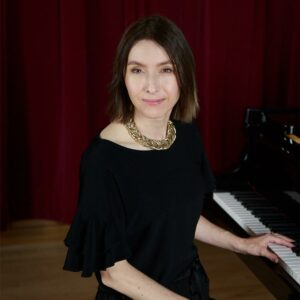
Leanna Kirchoff
A native of rural Colorado, Leanna Kirchoff’s music career began in a farmyard, singing her own songs to an audience of family and a few barn cats. Her early musical development also included studying piano and accompanying the choir at her local church. Kirchoff credits these early experiences as the genesis for her work as a composer whose catalog of music has grown to include many kinds of songs, musical theater pieces, sacred and non-liturgical choral music, and operas.

Christopher Jessup
Christopher Jessup is a multi award-winning composer and pianist whose music has been hailed as “lovely” [The New York Times], “imaginative” [Fanfare], and “ethereal” [Textura]. Highly regarded as both a composer and performer, Jessup is one of the foremost musicians of his generation.
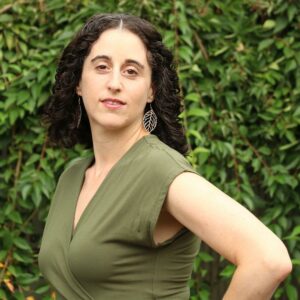
Karen Siegel
Composer Karen Siegel creates innovative, engaging, and meaningful choral and vocal works. Hailed as “colorful and at times groovy” (WQXR.org), her works are frequently performed by the New York City-based ensemble C4: the Choral Composer/Conductor Collective, which she co-founded in 2005. Recent commissions include the choral sound installation "Lessons of Stone," for the Astoria Choir at the Noguchi Gallery in Long Island City; and the feminist collaborative work Vision of Flight for the Danish National Girls’ Choir and cellist Henrik Dam Thomsen.
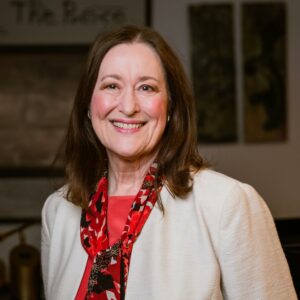
Deborah Kavasch
Deborah Kavasch, BMI composer, soprano, educator, and specialist in extended vocal techniques, has had works commissioned and performed in North America, Europe, the United Kingdom, and China. She has received grants and residencies in composition and performance, was a 1987 Fulbright Senior Scholar to Stockholm, and has appeared in major international music centers and festivals in concerts, solo recitals, workshops, lecture/demonstrations, and television and radio broadcasts since 1981.
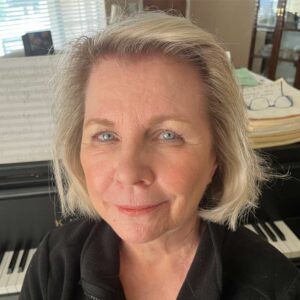
Anne Kilstofte
American composer Anne Kilstofte captures mood, color, and nuance in creating new musical worlds. “Kilstofte set music to words by Gerard Manley Hopkins that characterize stars as eternal images of life, love, hope, and redemption. Kilstofte creates a commanding expression of luminous splendour to evoke the awesome panorama that materializes nightly above us,” Textura said in their review of The Crossing’s rendering of Kilstofte’s Starlight Night. In a review by critic Larry Fuchsberg, he refers to her use of color: "The subtlety of the composer's palette displays an exceptional variety of tone color, conjuring landscapes that are sometimes misty, sometimes luminous, but always atmospheric.” Woolfe, from The New York Times, wrote of the 2024 release MECIENDO (in which Starlight Night ends the album), “The Crossing is in its usual exemplary form. The group is poised, lucid and luminous, supremely accurate and perfect for music in which sheets of translucent, jeweled sound seem to float over and past each other in slow motion.”
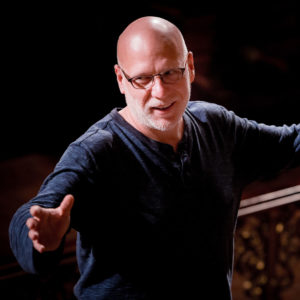
Donald Nally
Donald Nally collaborates with creative artists, leading orchestras, and art museums to make new works for choir that address social and environmental issues. He has commissioned nearly 200 works and, with his ensemble The Crossing (Musical America’s 2024 Ensemble of the Year), has produced 35 albums, winning three GRAMMY® Awards for Best Choral Performance, while nominated nine times.
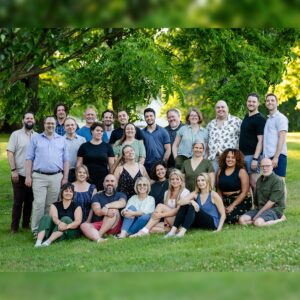
The Crossing
The Crossing is a professional chamber choir conducted by Donald Nally, dedicated to performing new music and committed to addressing social, environmental, and political issues through nearly 180 commissioned premieres. Collaborating with prestigious ensembles and venues like the New York and Los Angeles Philharmonics, Park Avenue Armory, Lincoln Center, and Carnegie Hall, The Crossing has released 35 albums, earning three GRAMMY® Awards for Best Choral Performance and multiple nominations. The Crossing is Musical America's 2024 Ensemble of The Year.
Isobel Anthony
Jessica Beebe 3
Steven Berlanga
Karen Blanchard
Steven Bradshaw 3
Abigail Chapman
Tyrone Clinton
Matt Cramer
Malcolm Cooper
Ryan Fleming
Steven Hyder
Lauren Kelly 2
Anika Kildegaard 1, 2
Heidi Kurtz
Sylvia Leith
Andrew Major
Maren Montalbano 3
Daniel O’Dea 3
Ben Perri
Olivia Prendergast
Thann Scoggin 3
Rebecca Siler 2
Daniel Taylor 2
Shari Wilson
Solos
1 The Starlight Night
2 Holy Waters
3 Meciendo
Donald Nally, conductor
Kevin Vondrak, assistant conductor and artistic associate
Andrew Major, collaborative keyboardist
Michael Hawes, trumpet

